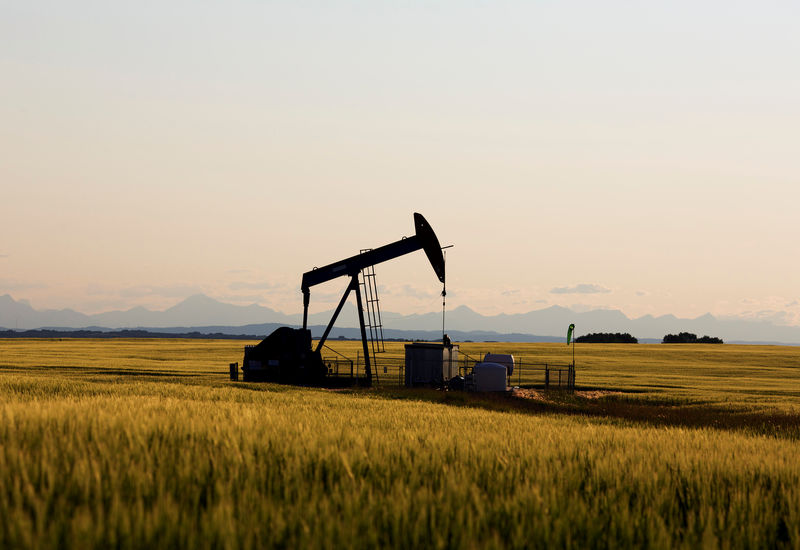By Henning Gloystein
SINGAPORE (Reuters) - Oil prices were pressured on Tuesday by an economic slowdown that has started to impact fuel consumption, although some support came from a Saudi Arabian statement that consensus was emerging with other producers over extending supply cuts.
Front-month Brent crude futures were at $61.06 at 0200 GMT. That was 22 cents, or 0.4%, below last session's close.
U.S. West Texas Intermediate (WTI) crude futures were at $53.08 per barrel, down 17 cents, or 0.3%, from their last settlement.
Oil futures are around 20% below 2019 peaks reached in late April, with falls in May the sharpest monthly declines since November.
That has come as financial traders sell out of oil futures amid growing concerns about the outlook for the world economy and oil consumption.
Saudi Energy Minister Khalid al-Falih said on Monday that a consensus was emerging among producers to continue working "to sustain market stability" in the second-half of the year.
The Middle East dominated producer club of the Organization of the Petroleum Exporting Countries (OPEC), together with some allies including Russia, has been withholding supply since the start of the year to prop up the market.
The group plans to decide later this month or in early July whether to continue withholding supply.
Meanwhile, U.S. oil output has been soaring, making the country the world's biggest crude producer, at 12.3 million barrels per day (bpd) at the end of May, versus 11.11 million bpd produced in Russia and 9.65 million bpd pumped out of the ground in Saudi Arabia.
With U.S. production surging, more of its oil is being exported, with a record of six super-tankers scheduled for loading at the Louisiana Offshore Oil Port (LOOP) between late May and early June.
For a graphic on Russian, U.S. & Saudi crude oil production, click: https://tmsnrt.rs/2EUHeFO
ECONOMIC WORRIES
Ole Hansen, head of commodity strategy at Saxo Bank, said "the tight supply focus (is) switching to increased risk of lower growth and demand", and that "an escalation of the U.S.-China trade war has added further downside risks to already slowing economies".
South Korea's economy shrank by 0.4% in the first quarter while core inflation slowed to a near 20-year low in May, data showed on Tuesday, pointing to a further economic slowdown in Asia.

"Slowing economic activity now threatens to derail our base case of robust cyclical (oil) demand growth," Bank of America (NYSE:BAC) Merrill Lynch said in a note.